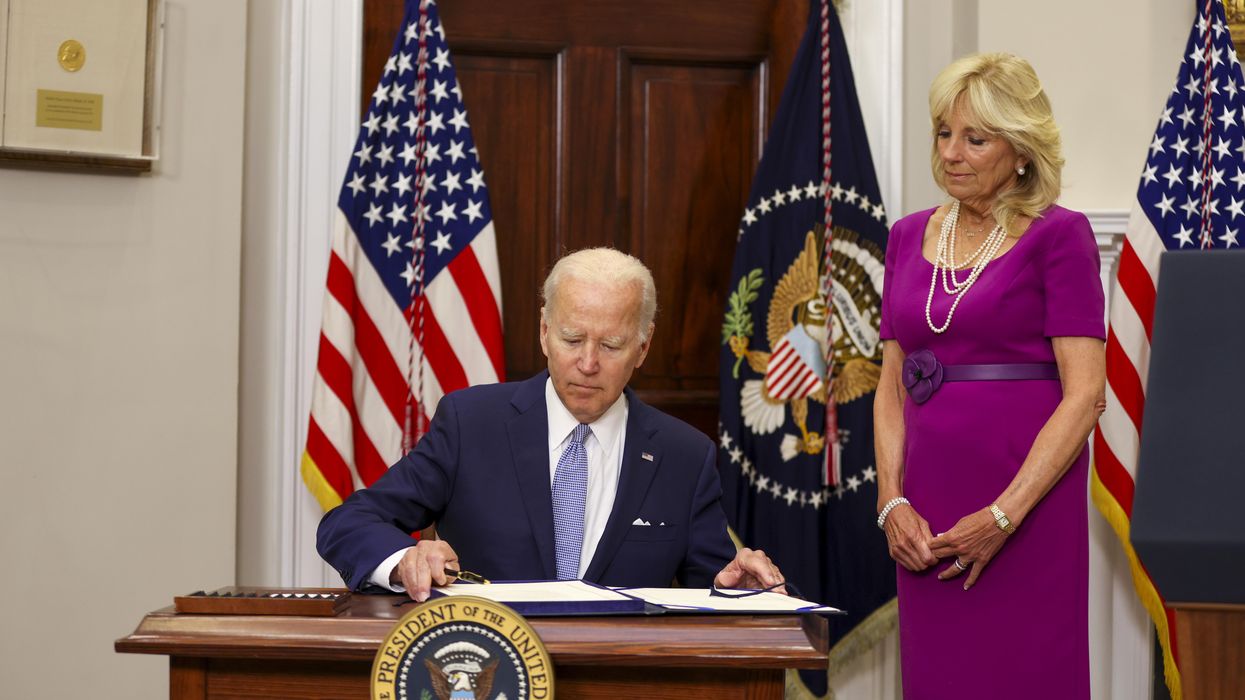Eisen is a senior fellow at Brookings and a former U.S. ambassador to the Czech Republic. Sonnett is a former federal prosecutor, criminal defense attorney and a board member of Lawyers Defending American Democracy. Aftergut is a former federal prosecutor, currently of counsel to LDAD.
Shootings continue in America, including the slaughter on July 4 in Highland Park, Ill. The legislative breakthrough that happened late last month didn’t stop them.
But it was a breakthrough nonetheless, one created by Americans committed to making a better country, along with bipartisan elected officials pushed into adopting the first gun safety bill in 30 years. Few believed it could occur.
President Biden’s June 25 signature on the legislation followed a 65-33 Senate vote that included 15 Republicans. The House bipartisan vote was 234-193. The NRA could not stop it. Polling shows that Americans support it 3-1.
Texas Sen. John Cornyn, a Republican, was an unexpected lead sponsor. He garnered GOP votes to overcome the filibuster, even though his “A+” NRA rating will surely, as Politico reported, “ take a downgrade.”
Give major credit to the citizen activists who were not daunted by Congress’ repeated failures to do anything, despite hundreds of mass shootings at schools, grocery stores and hospitals.
Those activists seem to have made their mantra Winston Churchill’s words in October 194,1 amidst his country’s against-the-odds survival of relentless Nazi bombing: “Never give in, never, never ... never yield to the apparently overwhelming might of the enemy.”
To be sure, the bill accomplishes far less than gun safety advocates sought. Still, the measure reverses the “anything goes,” unrestricted gun culture trend that is, literally, killing us. And perhaps with continuing gun massacres, one Senate success will inspire the next legislation so desperately needed.
As it is, the new law provides billions of dollars for state “crisis intervention programs,” state “red flag” laws, drug courts and veterans courts. The measure authorizes an “enhanced search” window to determine the background of gun-buyers between 18 and 21, and it helps close the “boyfriend loophole” allowing court-adjudicated unmarried domestic abusers to buy guns.
Here are four lessons about fighting for what seems beyond reach:
1. Commitment and persistence matter. Just look at Fred Guttenberg, whose daughter Jaime was killed in 2018 in Parkland, Fla. He became the face of the gun safety movement. The day after that shooting, a vision of his new life-work emerged: “I walked into my home that night, and ... said: ‘I’m going to break that f...ing gun lobby.’”
Along with others, Guttenberg has lived that vision. He never surrendered to the “overwhelming might of the enemy.” Determined individuals, joined by others, can bring change that most of us doubted would ever happen.
2. Organizing counts. The Senate first announced a “framework” for its package on Sunday, June 12, the day after activist and former Parkland student David Hogg had organized national gun safety demonstrations. It appears that senators did so on a Sunday because of the prior day’s demonstrations.
Hogg applauded the bill as "more than has ever been done in my lifetime on the federal level.”
3. Democracy remains alive. A pivotal moment occurred after many thought mass shootings had become so normalized that we would never cross this red-blue continental divide.
The slaughters in May in Buffalo and Uvalde, Texas, the Tulsa hospital killings and the non-stop shootings since brought us here. Sen. Chris Murphy, a Democrat and a lead negotiator, explained why: Public pressure was being put on lawmakers “at a rate that I've never seen before.”
4. Bipartisanship is possible. The Senate once got bipartisan deals via negotiations by a “Gang of Five.” Today, more mass is needed to overcome polarization. The gun bill required a Gang of 20.
Other important bipartisan legislation has been adopted on Biden’s watch – a Covid relief bill, an infrastructure bill and other smaller but still significant packages. Meanwhile, in the House, Republicans Liz Cheney and Adam Kinzinger, along with Democratic colleagues, are leading Jan. 6 committee hearings consisting of a stream of Republican witnesses speaking out against a former president of their own party.
Bipartisanship, though difficult, is not dead. The gun bill stands out for advancing our safety. The victory rises from the ashes of tragic, needless deaths and from our compassion for the living.
Even in a polarized Congress and country, citizens can flex their muscle and fight with heart. At least so long as they speak out and follow activist leaders who “never, never give in.”



















Trump & Hegseth gave Mark Kelly a huge 2028 gift